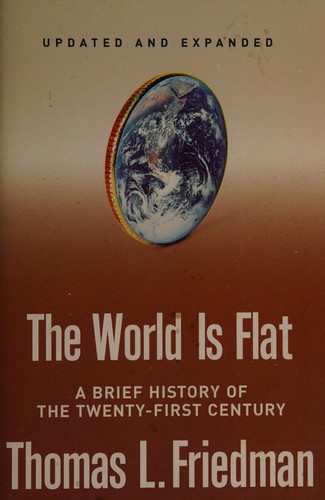600 pages
English language
Published Nov. 19, 2006 by Farrar, Straus and Giroux.

600 pages
English language
Published Nov. 19, 2006 by Farrar, Straus and Giroux.
When scholars write the history of the world twenty years from now, what will they say was the most crucial development at the dawn of the 21st century--the attacks of 9/11, or the convergence of technology and events that allowed India, China, and so many other countries to become part of the global supply chain for services and manufacturing, creating an explosion of wealth in the middle classes of the world's two biggest nations, and giving them a huge new stake in the success of globalization? And with this "flattening" of the globe, has the world gotten too small and too fast for human beings and their political systems to adjust in a stable manner? Friedman explains how the flattening of the world happened; what it means to countries, companies, communities, and individuals; and how governments and societies can, and must, adapt.
